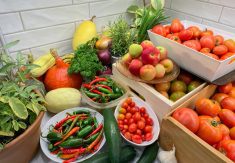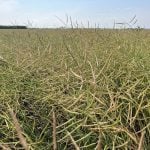Internet news site Yahoo Education recently published an article titled “College Majors that are Useless.” Agriculture topped the list, followed by fashion design, theatre, animal science and horticulture. The Yahoo article’s rationale was largely based on the projected continuing decline in the numbers of farms in the U.S.
“In fact, the U.S. Department of Labor projects 64,000 fewer jobs in this field over the next seven years,” the article said.
U.S. agriculture colleges shot back, with the deans of agriculture at Purdue University, the University of Illinois, the Ohio State University and Iowa State University issuing a joint press release. Excerpts follow:
Read Also

Winter downtime: Get your farm records together
Winter is an ideal time to revamp farm financial record keeping, leading to better business decisions and a less stressful tax season in 2026.
- The Yahoo Education article equated “agriculture” with “farm management.” Farm management is an important field of study, but defining agriculture only as farm management is much too narrow. Completely ignored are other important areas under the umbrella of “agriculture” including food science, plant science, and soil science, where the Bureau of Labor Statistics report predicts job growth should be faster than the average for all occupations, and where job opportunities are expected to be good over the next decade, particularly in food science and technology and in agronomy. And, of course, the “agriculture” umbrella also covers agricultural economics, agricultural engineering, animal sciences, natural resource and environmental sciences, and agricultural education, to name a few.
- Very low unemployment rates. Recent online posts cited a just-released report by the Georgetown University Center on Education and the Workforce which found agriculture and natural resources to be among the fields with the lowest unemployment rates — lower than business, engineering, law, and several others.
- (A U.S. Department of Agriculture report) projects that 53,500 qualified graduates will be available for about 54,400 jobs annually in the agricultural and food systems, renewable energy and the environment. About 55 per cent of those graduates (29,300) are expected to earn degrees from colleges of agriculture and life sciences, forestry and natural resources, and veterinary medicine.
- The director of the Collegiate Employment Research Institute at Michigan State University recently wrote, “No sector appears stronger than agriculture/food processing with an increase in hires of approximately 14 per cent.”
- The Midwest area, once dubbed the “Rust Belt,” is becoming the breeding ground for new “green” agriculture-related jobs as the agriculture-driven industry is poised to expand into new markets such as health, specialty crops, biofuels and bio-based products.
- The article completely misses an important trend of interest in small-scale, local food production and those who want to become part of agriculture by launching these types of businesses. The Bureau of Labor Statistics report from which (the author) took some of his numbers even points out that “…an increasing number of small-scale farmers have developed successful market niches that involve personalized, direct contact with their customers. Many are finding opportunities in horticulture and organic food production, which are among the fastest-growing segments of agriculture.”
- The success of our graduates is also a testament to the usefulness of agricultural majors. Students majoring in “agriculture” study farm management, horticulture, and animal sciences — as well as agricultural and food business, food science, biological engineering, plant breeding and genetics, wildlife biology and forestry, biochemistry, microbiology, entomology, and other exciting, science-based areas. Our graduates take jobs in a wide variety of industries, pursue research careers, and work in public service in the U.S. and internationally.
Across all four of our agricultural colleges, total enrolment is the highest in 30-plus years, applications are going up and, most importantly, at the end of their undergraduate careers, our students are facing excellent job or graduate program opportunities. Placement rates are higher than 90 per cent, with 16-26 per cent of that total choosing to pursue advanced degrees and professional education.













